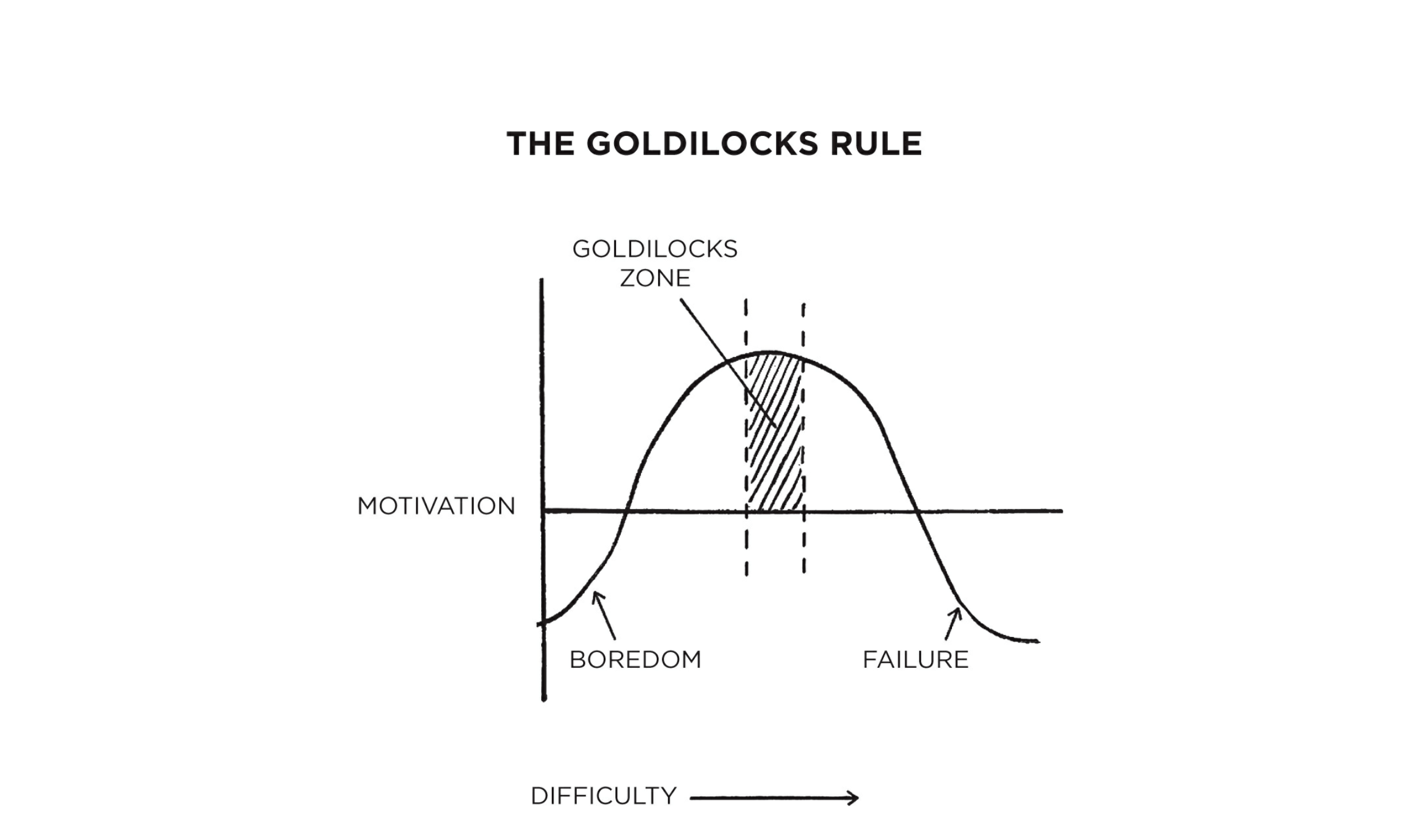How can you stick to your dreams and stay motivated?James Clear, an American businessman, offers a simple, scientific answer to this question: all you have to do is just follow a rule: the Goldilocks rule, also known as the Goldilocks rule.
Clear explains that while much remains to be learned, one of the most consistent conclusions is that perhaps the best way to stay motivated is to work on “manageable difficulty” tasks.
- If you face a very simple challenge.
- You will get bored; If you face a big challenge.
- You will be discouraged.
- You need a challenge that goes a little beyond what you have achieved so far.
- Enough not to get bored and not to be discouraged.
- This phenomenon is what James Clear calls the rule of the golden cycle.
- The rule of golden curls.
The Goldilocks rule states that humans experience maximum motivation when working on tasks that are at the limit of their current abilities. This shouldn’t be too difficult or too easy. Only the right difficulty?-James Clair-
Finding that point of difficulty will not only keep you motivated, but will also make you happier. Psychologist Gilbert Brim clearly quotes this point. ” One of the important sources of human happiness is to work on tasks with the right level of difficulty, neither too difficult nor too easy.
Clear uses the example of playing tennis against someone who looks like you. As the game progresses, you earn points and lose more. If you work hard, you have a chance to win the game. At this stage, your concentration shrinks, distractions, disappear and you’re completely involved in your task.
The challenge you face is “just manageable”. Although victory is not guaranteed, it is possible. Clear explains that it is these types of tasks that will keep us more motivated in the long term, according to science.
“Humans love challenges, but only if they are in the ideal area of difficulty. Tasks that are significantly inferior to your current abilities are tedious. Tasks that far exceed their current abilities are crumbing. But the tasks that are on the verge of success and failure are incredibly motivating for the human brain. Don’t we want anything more than to master a skill beyond our current horizon?. – James Clair-
Clear says working on tasks that fit the Goldilocks rule is one of the keys to maintaining long-term motivation. Find a way to take your tasks to the limit of your skills, to the point of feeling challenged, but at the same time, capable. doing so is the key to maintaining motivation.
The combination of happiness and maximum performance is called flow, says Clear. Flow, as a state of maximum motivation, is the state of mind you experience when you’re so focused on the task at hand that the rest of the world disappears, he explains.
Researchers found that one factor related to flow states is whether or not they follow the Goldilocks rule, Clear explains. If you work on challenges of proper difficulty, you will not only be motivated, but you will also experience an impulse of happiness.
However, to achieve this state of maximum performance, you must not only work on the challenges with the right degree of difficulty, but also evaluate your immediate progress. As psychologist Jonathan Haidt explains, one of the keys to achieving a flow state is to get a state of immediate fluidity. information about your progress at every step. In this sense, Clear says, evaluation is a key motivator.
“Facing an appropriate challenge and receiving immediate feedback on your progress in this challenge are two of the most important elements of maximum motivation. “- James Clair-
Finally, a curiosity: the Golden Ricitos rule takes its name from the children’s tale “Golden Ricitos and the Three Bears”. In the story, he enters the house of the three bears and proves everything that interests him, until he discovers what he likes: he does not make the effort to eat the soup that is too hot, to stay in the small armchair himself or to lie down in a very low bed. While the end of the story has little application in the Goldilocks rule, the inspiration is certainly interesting.

